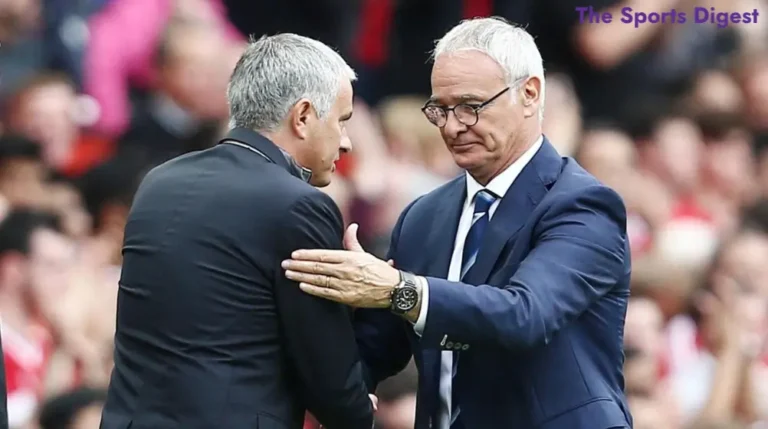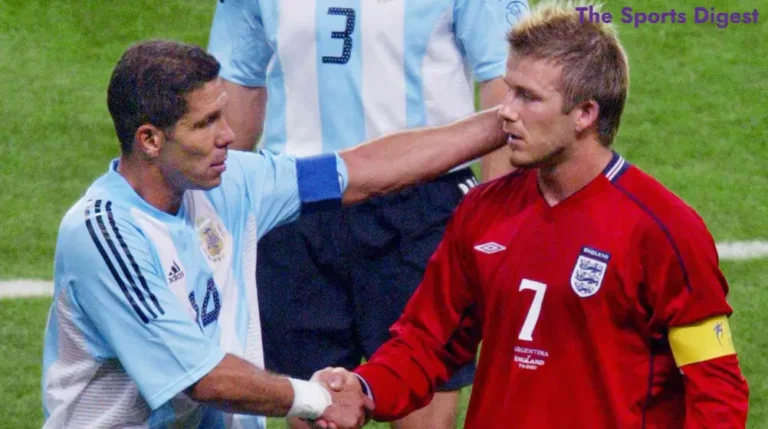Nicolas Anelka: Beyond the Sulk
Few footballers have been as polarizing as Nicolas Anelka. Throughout his career, debates raged about his true character – was he the sullen troublemaker portrayed by the media, or a misunderstood talent constantly searching for a place to call home? While controversy may have followed him across Europe’s top leagues, one fact remains undeniable: Nicolas Anelka was a striker of exceptional ability whose prolific goalscoring talent was often overshadowed by his troubled public image.
Table of Contents
Early Life and the Seeds of Self-Belief
Born to Congolese immigrants in Trappes, an economically challenged Parisian suburb, Anelka’s background might suggest a classic “rags to riches” narrative. Yet, he consistently refused to credit his upbringing as motivation for his success. Instead, Nicolas Anelka possessed an unwavering belief in his natural ability from a remarkably young age – a self-assurance that would both drive his success and contribute to his complicated reputation.
The Arsenal Years: Emergence and Early Discontent
After progressing through Paris Saint-Germain’s youth ranks, Anelka’s £500,000 move to Arsenal in 1997 at just 17 years old set a precedent for Arsène Wenger’s transfer policy of identifying young French talent. His impact was immediate – in his first full season, he scored six goals and seamlessly adapted to Wenger’s free-flowing football philosophy, helping Arsenal secure a domestic league and cup double.
The following season, Nicolas Anelka truly blossomed as he became Arsenal’s top scorer, effectively taking the torch from club legend Ian Wright. Despite this rapid rise, rumors of discontent and a potential move away from Highbury began circulating even before his breakout season concluded, with Marseille frequently mentioned as a likely destination.
The Birth of “Le Incredible Sulk”: Media Portrayal
The English media played a crucial role in constructing the negative narrative that would follow Nicolas Anelka throughout his career. Rather than portraying him as a young player naturally missing home, they chose to depict him as a “sullen, sulking, spoilt footballer.” This characterization led to him being branded the “enfant terrible” of French football and christened with the unfortunate nickname “Le Incredible Sulk” – a label that would overshadow his undeniable talent in stark contrast to the adoration heaped upon compatriots like Thierry Henry and Zinedine Zidane.
Real Madrid: High Expectations and Hostility
Anelka’s highly publicized move to Real Madrid should have been the platform to showcase his immense talent on the world’s biggest stage. Instead, he faced internal hostility from the outset, with many at the club perceiving his arrival as an affront to established striker Fernando Morientes. Though his time at the Bernabéu is best remembered for scoring crucial goals in both legs of the Champions League semi-final against Bayern Munich, it was also marred by a public spat with the club’s hierarchy.
The tension culminated in a 45-day suspension after Nicolas Anelka criticized the team and his teammates, claiming they treated him “like a dog.” The article points out the stark discrepancy between his marginal role and the club-record £23 million fee paid for his services – a situation that did little to dispel his growing reputation for discontent.
A Difficult Homecoming and the “Mercenary” Label
Anelka’s return to Paris Saint-Germain proved equally frustrating. What should have been a triumphant homecoming was derailed when the club changed both coach and policies regarding young players shortly after his arrival. Following a productive loan spell at Liverpool, his failure to secure a permanent move at Anfield further fueled the tabloids’ portrayal of him as a “mercenary” – a label that would persist throughout his career.
This characterization conveniently overlooked a more sympathetic reality: Nicolas Anelka was simply struggling to find a club that kept its promises of success and would make him a central attacking figure. His nomadic career was as much a reflection of broken promises as it was personal restlessness.
Finding a Foothold: Manchester City and Fenerbahçe
At pre-Mansour Manchester City, Nicolas Anelka finally found an environment where he could thrive as the main player in a hardworking team. His subsequent move to Turkish giants Fenerbahçe, however, was widely interpreted as a decline in his ambition, further cementing the perception that his priorities lay in financial security rather than competitive achievement.
Premier League Redemption: Bolton and Chelsea
Anelka’s career renaissance in England began unexpectedly at Bolton Wanderers, a club typically known for signing aging stars rather than prime talents. Despite an initial goal drought, his spectacular form – including a memorable goal against former club Arsenal – eventually caught the attention of Chelsea.
His consistent Premier League performances not only secured a move to Stamford Bridge but also forced his recall to the French national team despite a previously tumultuous relationship with Les Bleus.
Success at Stamford Bridge: Triumph and Lingering Issues
At Chelsea, Nicolas Anelka finally achieved the sustained success that his career had always threatened to produce. He formed a lethal partnership with Didier Drogba, won the Premier League Golden Boot, and replicated his earlier league and FA Cup double success from his Arsenal days.
Yet even during this period of stability and achievement, the article acknowledges that “Anelka hasn’t been entirely innocent” in his career controversies, suggesting a pattern of behavior that continued to attract negative attention despite his on-field excellence.
Later Career and Final Controversies
Anelka’s international career effectively ended after his central role in the player revolt at the 2010 World Cup, while his time in English football concluded under a cloud following accusations of making an anti-Semitic gesture while playing for West Bromwich Albion. Lucrative spells in Shanghai Shenhua and Mumbai FC did little to change his “mercenary” image in the twilight of his playing days.
Beyond the “Sulk”
Throughout his storied career, the media’s portrayal of Nicolas Anelka as a sullen outcast remained remarkably consistent, regardless of his achievements on the pitch. Yet behind the headlines and controversies stood a striker of remarkable talent and versatility – a player who scored prolifically across five major European leagues and won trophies at the highest level.
Perhaps Anelka would prefer to be judged solely on these footballing achievements rather than the persona constructed around him. When the goals and trophies are tallied, “Le Incredible Sulk” reveals himself as something far more significant: one of the most gifted strikers of his generation who never quite escaped the shadow of his own reputation.
Have you ever read an article like this?
There are no reviews yet. Be the first one to write one.






